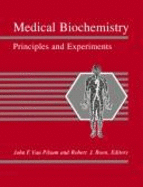
Clinical laboratory: organization and management, safety, good lab practices, quality control and assurance, reference range and normal values, laboratory data processing; Handling and processing of clinical samples; Effect of storage on composition of samples; Commonly used instruments in clinical laboratory: Microscope, Minilab apparatus, X-ray, ECG, MRI, ELISA reader, CT scan etc.; Symptomlogy and case histories of various diseases. Forensic science, Molecular basis of diagnosis.
To understand the role and requirements of clinical laboratory and how chemical and biochemical analysis are applied to the study of disease
To discuss the function, structure, laboratory investigation and diseases of the different body systems
To correlate laboratory findings in clinical samples with various pathological processes
Blood sampling techniques; Complete blood picture (CBP) like Hb, PCV, ESR, TLC, DLC, bleeding time, clotting time, prothrombin time and blood groups; Pregnancy test; Liver function tests; Kidney function test; Cardiac enzymes; Lipid profile, total proteins, albumin and serum minerals; Urine analysis for bile pigments, protein, urea, pH, ketone bodies, sugars, creatinine, pus cells, RBCs and uric acid; Sero-diagnosis of infectious diseases; Visit to clinical laboratory/concerned organization.





